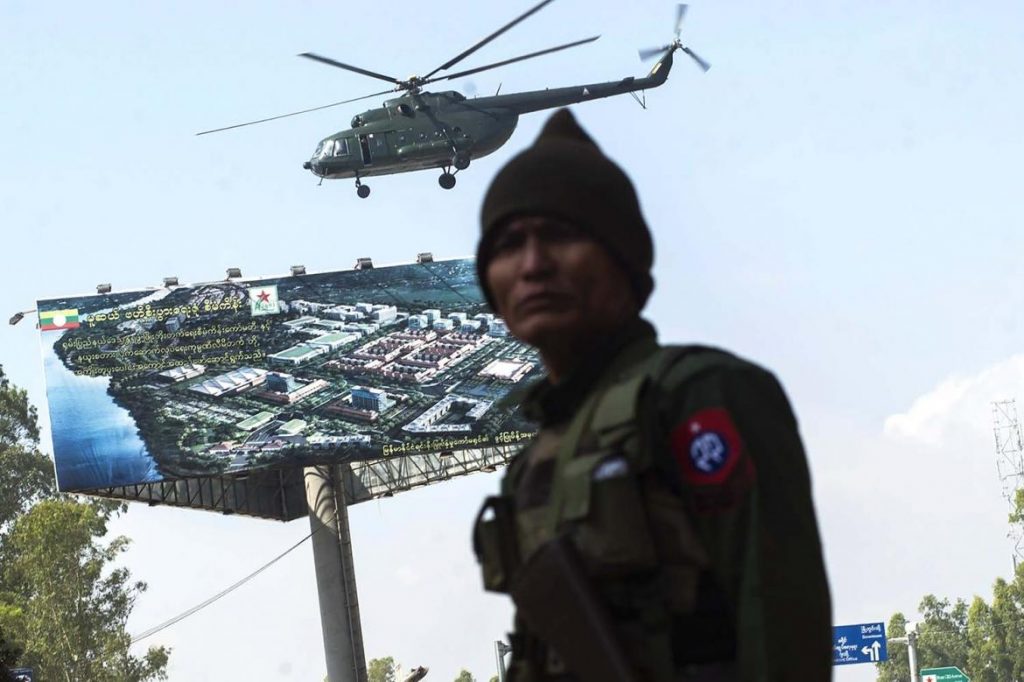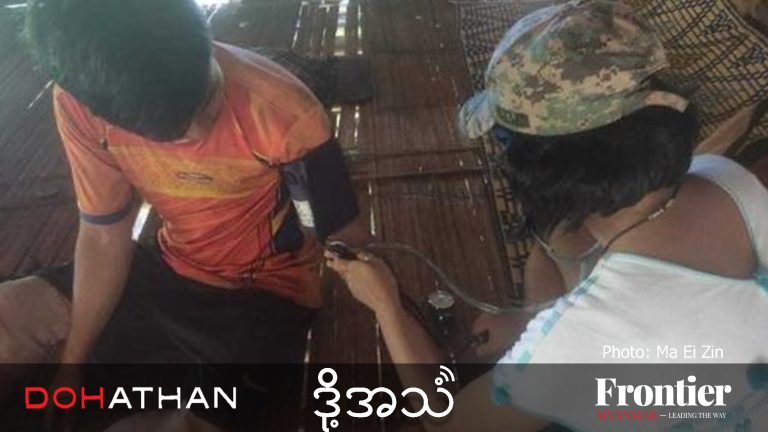By YE MON | FRONTIER
NAY PYI TAW — The Tatmadaw has extended its unilateral ceasefire to June 30 at the request of the Northern Alliance just hours before it was due to expire.
The Commander-in-Chief’s Office announced the two-month extension on April 30 “upon [the] demand of the ethnic armed groups as part of efforts for gaining eternal peace and for effectively bring[ing] about the peace in the country”.
The statement came the same day as the government’s National Reconciliation and Peace Centre held talks at Muse in northern Shan State with the four armed groups that make up the Northern Alliance.
Brigadier-General Zaw Min Tun, secretary of the Tatmadaw True News Information Team, told Frontier on April 30 that the military would use the ceasefire window to pursue negotiations with the Northern Alliance members towards signing the Nationwide Ceasefire Agreement.
Support more independent journalism like this. Sign up to be a Frontier member.
“The extension is the positive result of the Muse peace talks. We will make sure that they sign the NCA during the extension period,” Zaw Min Tun said.
The Tatmadaw announced a unilateral ceasefire covering military commands in Kachin and Shan states – but not Rakhine State – on December 21, 2018. Two weeks later, the Arakan Army launched coordinated attacks on four police stations in northern Rakhine State, killing 13 officers. The extended ceasefire also excludes Rakhine State, which has seen fierce fighting between the Tatmadaw and AA in recent months.
According to a report in the state-run Global New Light of Myanmar, the Commander-in-Chief’s statement said the ceasefire was extended at the request of the Kachin Independence Army, the Myanmar National Democratic Alliance Army and the Ta’ang National Liberation Army “so that they can carry on the peace making till they can sign the NCA”. The report did did not mention the AA.
However, the AA’s political wing, the United League of Arakan, attended the April 30 meeting at Muse in northern Shan State with the NRPC, the government’s peace negotiation body.
Peace Commission deputy chair U Thein Zaw led the government delegation in talks with the Kachin Independence Organisation, the ULA, the Myanmar National Truth and Justice Party – the political wing of the MNDAA – and the Palaung State Liberation Front, which is the political wing of the TNLA.
The United Wa State Party and Shan State Progress Party, political wing of the Shan State Army-North, sent observers to the talks.
None of the six groups in attendance are signatories to the NCA, which has so far been inked by 10 non-state armed groups.
The state-run Global New Light of Myanmar reported that the KIO, which brokered the meeting, presented a proposed bilateral ceasefire to the NRPC.
While the draft ceasefire was not examined “in detail” at the meeting, participants did discuss several proposed elements, including “pledges on signing NCA, deployment of forces, opening of liaison offices, ways to avoid conflict and specific matters to be included in the NCA”.
The report said that the participants in the meeting agreed to meet again in May to continue discussions.
Frontier was unable to reach members of the government’s peace negotiation team or the Northern Alliance for comment.
However, U Hla Maung Shwe, who attended the talks as part of the government delegation, posted on Facebook that the peace talks represented a step forward and they had agreed to meet again in the third week of May.
Political analyst U Maung Maung Soe said the ceasefire should have been extended to Rakhine State but even so it was still a positive sign for the peace process.
Even without a ceasefire covering Rakhine State, “the AA, government and military can still discuss the clashes as long as the government and military are willing to meet with the Northern Alliance groups.”







